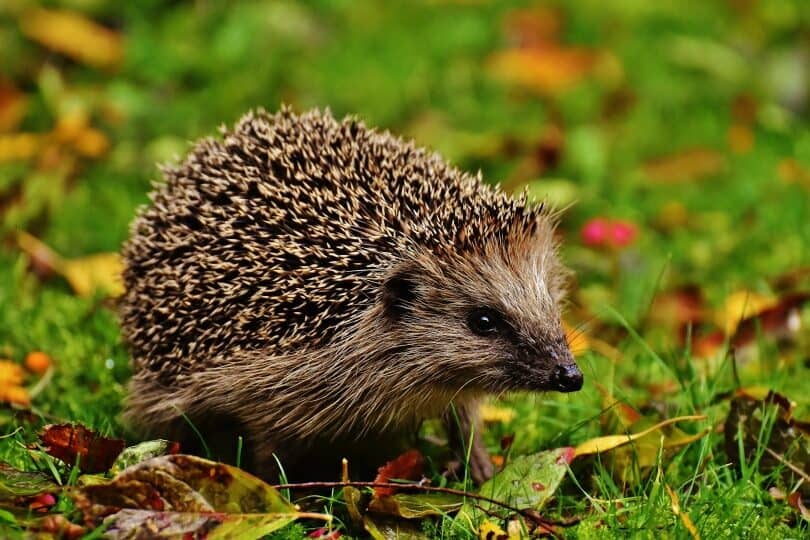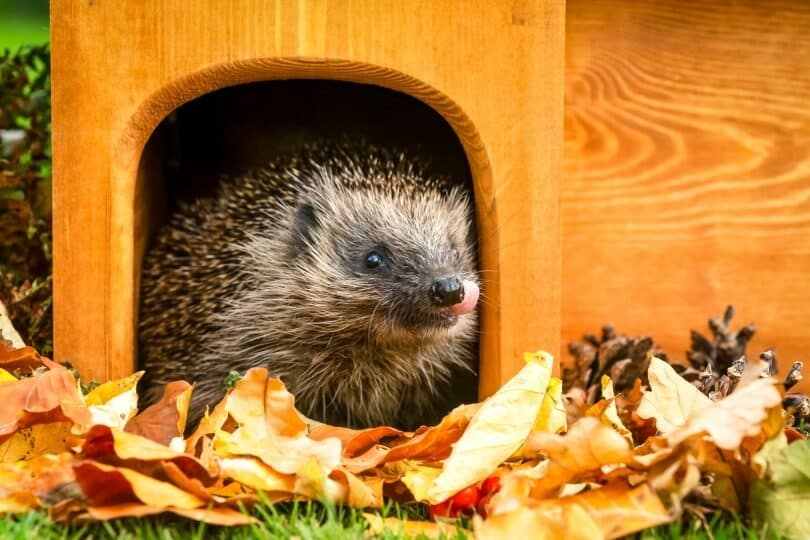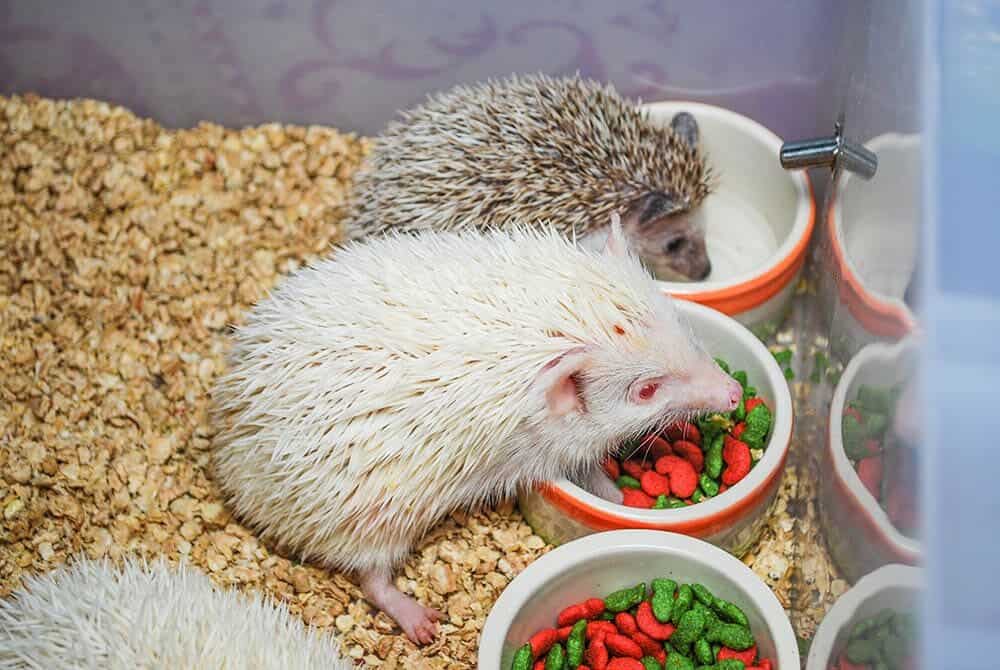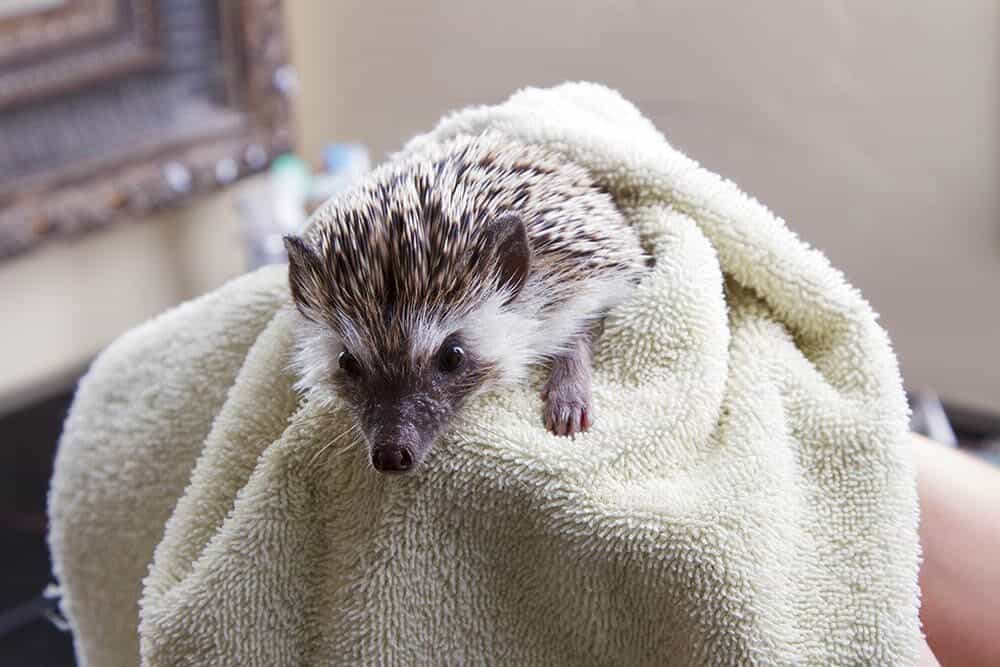As hedgehogs become more popular pets, more and more people want to know how long these adorable creatures live. Luckily for hedgehog owners, hedgehogs can live for many years, though wild hedgehogs don’t fare as well.
To find out exactly how long your pet hedgehog may live, as well as its wild cousins, keep reading. In this article, we explain the average lifespan of a hedgehog, specifically African Pygmy Hedgehogs, and factors that impact the lifespan of these adorable little creatures.
Let’s get started.
What’s the Average Lifespan of a Hedgehog?
The average lifespan of a hedgehog ranges from 2 to 7 years old. Hedgehogs in the wild typically only live to be 2 or 3 years old due to natural predators. Pet hedgehogs live for much longer since they don’t have to fight off predators.
In fact, the average lifespan for a pet hedgehog can be anywhere from 3 to 7 years. There have even been reports of pet hedgehogs living to be as old as 10. Although living for a decade is relatively unheard of for hedgehogs, it’s not uncommon for hedgehogs to live long and happy lives in captivity.

How Long Do African Pygmy Hedgehogs Live?
African Pygmy Hedgehogs especially have good life spans. With proper health care, most African Pygmies live to be between 4 and 6 years old. Given that most pet hedgehogs today are African Pygmies, this is great news for many hedgehog owners.
Why Do Some Hedgehogs Live Longer Than Others?
Once again, hedgehogs can live to be between 2 and 7 years old, but five years is quite a big difference between two hedgehogs. Why exactly do some hedgehogs only live to be 2 years old, whereas others can live to be of the ripe old age of 10?
Much like other species, many factors impact how long a hedgehog lives. By paying attention to your hedgehog’s quality of life, you can help to extend its lifespan. Here are the most important factors that impact how long a hedgehog lives:

Environment
The most important factor that impacts how long a hedgehog lives is its environment. Wild hedgehogs have much shorter lifespans than domesticated ones since they are exposed to predators.
Most hedgehogs only live to be 3 years old in the wild since they are eaten by predators before getting any older. In contrast, domesticated hedgehogs don’t have to worry about being eaten up by predators. Instead, they get to live out their full lifespan and eventually only die due to old age or health problems.
Living Conditions
There is still a lot of variation between the expected lifespan of domesticated hedgehogs because of living conditions. Some domesticated hedgehogs lived a life of luxury and are given everything they need for a healthy life. In contrast, other pet hedgehogs are not provided the proper living conditions and diet to remain healthy.
Most importantly, many hedgehog owners don’t know that hedgehogs are sensitive to the material used as bedding. Many softwood beddings lead to respiratory issues. Selecting bedding not associated with respiratory issues helps to extend the pet’s life.
Another common problem associated with domestic hedgehog living conditions is stress. Because hedgehogs are natural prey animals, they can get stressed out easily. If they live in a stressful environment, the stress wears down the hedgehog’s health over time, eventually leading to premature death.

Genetics And Breeding
Just like every other animal, not all hedgehogs have the same genetics. Certain hedgehogs are predisposed to illnesses, whereas other hedgehogs are healthy until the time they die. Unfortunately, there’s little you can do about the genetics of your hedgehog other than providing it with the best quality of life possible.
That being said, some hedgehogs have poor genes due to irresponsible breeding. If you select a hedgehog from an irresponsible breeder, it’s much more likely to have predisposed health conditions and bad genes.
It’s for this reason that it’s of utmost importance to buy your hedgehog from a responsible and ethical breeder. Not only does this improve the quality of life for the parent hedgehogs, but it also means your hedgehog will likely be healthier and more comfortable around humans.
Diet And Exercise
Hedgehogs have a particular diet. If you don’t follow the hedgehog’s diet carefully, you can expect it to gain weight or develop diet-related illnesses, weaker immune systems, and even developmental issues.
Not to mention, pairing a poor diet with little exercise is highly dangerous for hedgehogs, just as it is dangerous for people. In the wild, hedgehogs are not provided with constant food and have to work for it instead. Because of this fact, many domesticated hedgehogs gain weight quickly since they don’t have to work for their food and are overfed.
To ensure that your hedgehog is as healthy as possible, only feed it food that is recommended by veterinarians. At the same time, make sure that the hedgehog gets enough playtime so that it can burn off enough calories to maintain a healthy weight.

Access to Healthcare
Because hedgehogs are exotic pets, you can’t just take them to any veterinarian and expect the veterinarian to have the expertise and provide health care for your pet. Instead, you will have to find an exotic pet that specializes in hedgehogs and other related animals.
Exotic veterinarians of this kind are often expensive, but they can make the difference between a healthy hedgehog and a sick one. Without the right care, your hedgehog might not live as long as it could with an experienced veterinarian.
The 5 Life Stages of a Hedgehog
Hedgehogs have around 5 live stages: hoglet, juvenile, young adult, mature adult, and senior. Just as with humans, hedgehogs spend most of their time in the mature adult phase. Let’s take a look at each one of these stages in more detail.

Hoglet
Whenever hedgehogs are born, they are called hoglets. Most hoglets are born during the month of June, and they are often born with six or seven in their litter. While hedgehogs are hoglets, the mother we’ll run off to forage for food while the babies stay behind.
Juvenile
As soon as the next month, hoglets will enter into the juvenile phase where they will begin joining their mothers on the foraging trips. During these foraging trips, the juveniles will learn how to search for food, but they will still be eating the mother’s milk as well.
Young Adult
By August, the hoglets will transition to the young adult phase where they are independent of their mother and siblings. At this point, the hedgehogs are on their own and live solitary lives, but they aren’t sexually mature yet.

Mature Adult
Whenever the hedgehogs are about two years old, they finally become mature adults. Maturity is marked by sexual maturity. This often happens within the second year of life. Hedgehogs will be able to reproduce until they die.
Senior
Most hedgehogs in the wild do not make it to the senior stage. Much like other animals, senior hedgehogs are more susceptible to illnesses and diseases. Even though hedgehogs can technically reproduce up until their dying days, most senior hedgehogs have difficulty reproducing due to their age.
How To Tell Your Hedgehog’s Age
Unfortunately, there’s no way to look at a hedgehog and tell its age. Obviously, you will know that a hedgehog is a hoglet if it is still dependent on its mother or has not fully developed its quills yet. Likewise, you won’t know that your hedgehog is an adult until it is able to reproduce.
In other words, you can estimate the life stage of your hedgehog, but you likely won’t be able to perfectly estimate its age.

Conclusion
Hedgehogs are small creatures that can live to be up to a decade long with proper care and attention. Most likely, your pet hedgehog will live to be between 3 and 7 years old. Unfortunately, wild hedgehogs don’t live as long due to predators.
If you want to extend the lifespan of your pet hedgehog, make sure to provide it with the proper care and medical attention it needs. These two tips are crucial for hedgehogs to live happy and healthy lives.
Featured Image Credit: Coatesy, Shutterstock
















